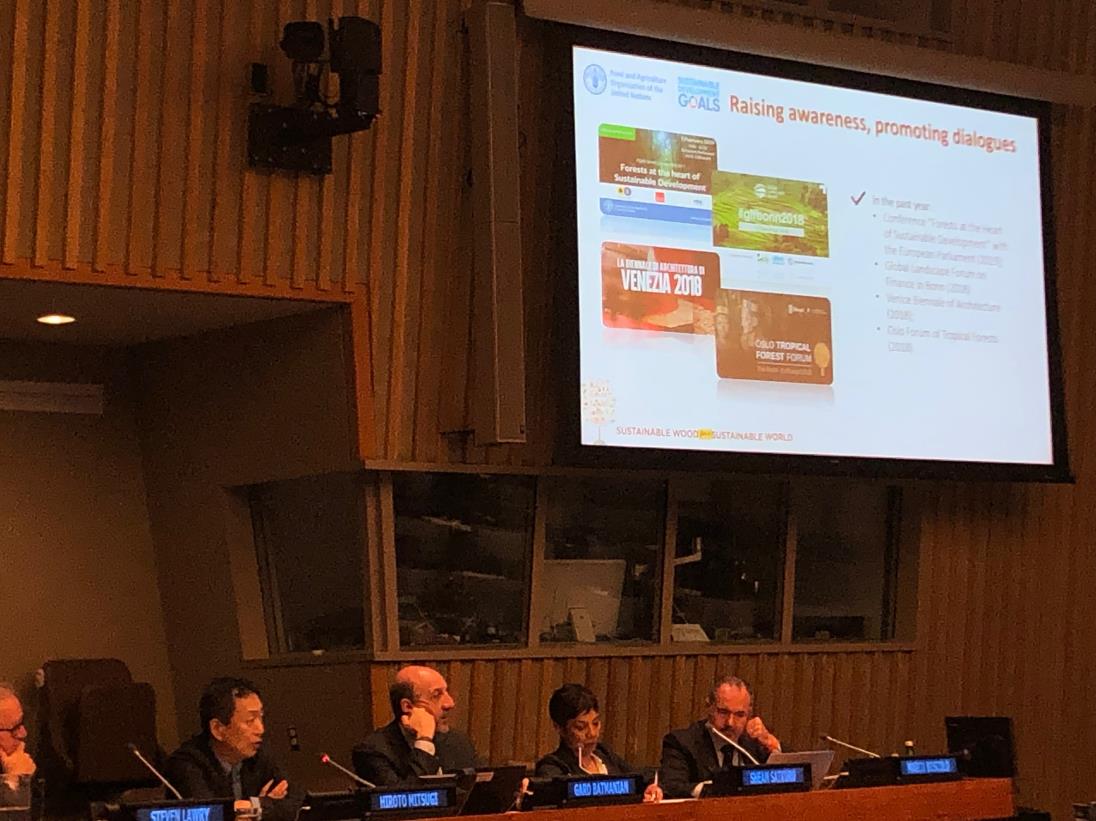FAO at UN Forestry Forum highlights sustainable wood and ecosystem restoration

Societal benefits of sustainable wood value chains and ecosystem restoration received prominent attention through FAO’s engagement in the Fourteenth Session of the United Nations Forum on Forests (UNFF14).
The FAO delegation was led by Assistant Director-General of the Forestry Department Hiroto Mitsugi, who, in his capacity as the chairperson of the interagency Collaborative Partnership on Forests, delivered a statement at the plenary session agenda item on “United Nations system-wide contributions to the implementation of the global forest goals and targets.”
FAO also organized and participated in a number of side events on some of its key forestry initiatives.
On 7 May, FAO co-organized an event on “Scaling Up Sustainable Wood Value Chains,” which took stock of the achievements and lessons learned from the Sustainable Wood for a Sustainable World (SWSW) initiative.
“The Sustainable Wood for a Sustainable World initiative highlights links between forests and a sustainable bioeconomy,” Mr. Mitsugi said during a keynote presentation at the event.
Launched in 2018 as a joint initiative of the Collaborative Partnership on Forests, the SWSW has implemented collaborative pilot activities and catalysed efforts to mainstream sustainable wood value chains in development. It has also promoted positive linkages between value chains and poverty reduction, sustainable landscapes and sustainable growth.
Mitsugi also moderated a panel on “Contributions of CPF members to implementation of the UNSPF 2030” and was a speaker at a panel on “Enhancing cooperation, coordination and cross-sectoral engagement in support of the implementation of the UNSPF 2030 and other forest-related international agreements.”
On 8 May, FAO co-organized an event entitled, “Why is investment in Restoration slow – Do we have the right benefits and costs? A critical look and way forward for cost-benefit analysis.”
Presenting on FAO’s The Economics of Ecosystem Restoration (TEER) initiative, Marco Boscolo of the Governance and Economics Team at the FAO forestry department explained that informed decision-making on ecosystem restoration would benefit from building a reliable database on the costs and benefits of restoration in all major biomes, which the TEER initiative seeks to achieve.
First established as a division of Forestry and Forest Products in 1946, FAO’s forestry department has the mandate to assist member countries to manage forests sustainably. It is an active partner in the global, multilateral and interagency forestry discussions and produces a biennial “The State of the World Forests” report.
